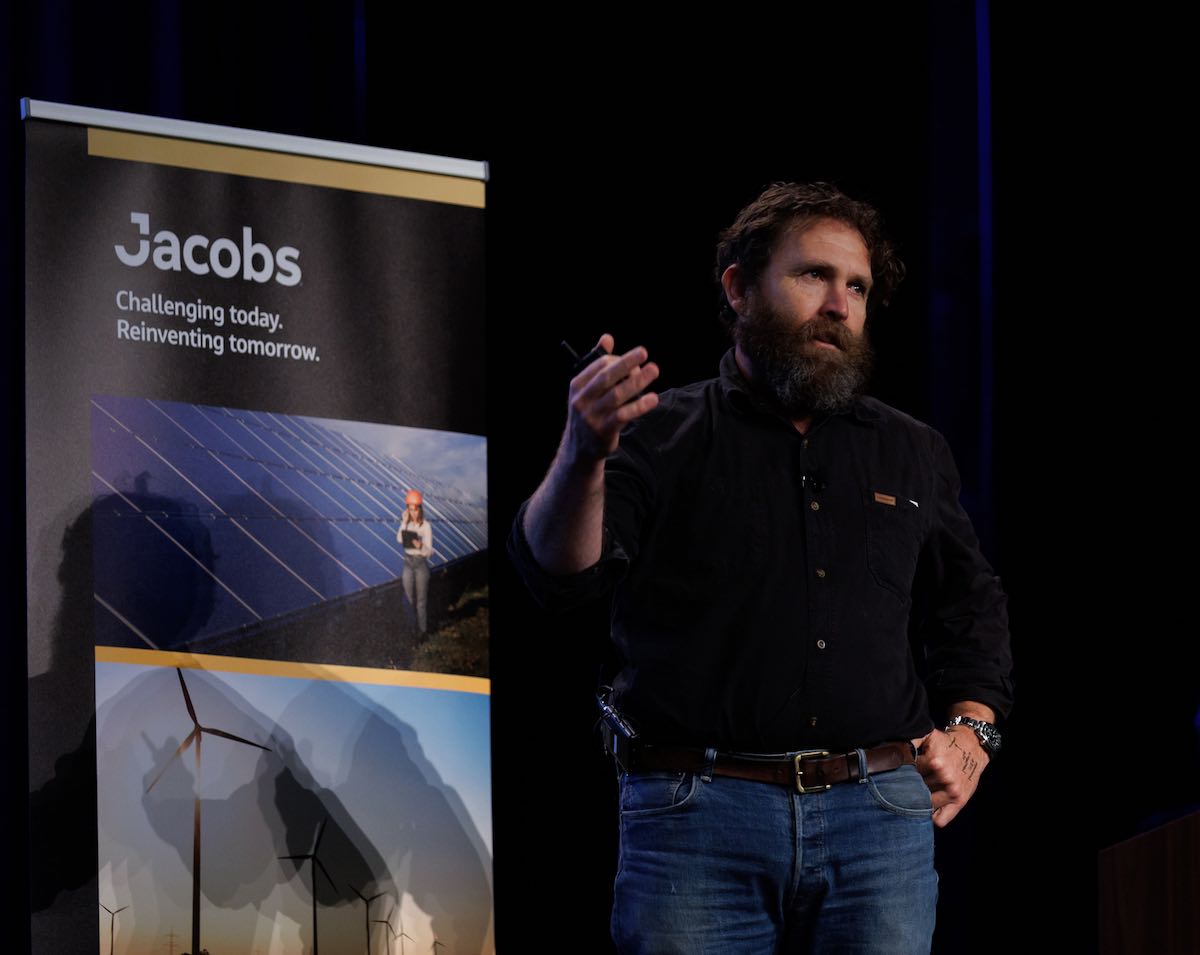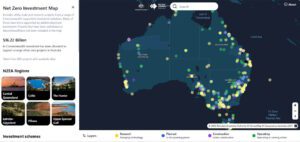RenewEconomy will be updating this “live” coverage of the Australian Clean Energy Summit throughout the two days of the conference. Please refresh story for latest update. Scroll down for earlier stories. Tuesday’s live reports can be found here.
Deep decarbonisation could require six-fold increase in electricity use
According to Transgrid’s general manager for network planning, Kasia Kulbacka, Australia’s grid will not only need transition onto cleaner energy sources, but it will also need to be massively expanded to manage the wide-scale electrification of energy use, as touted earlier in the day by Saul Griffith.
“In 2050, renewable energy zones in the NEM are projected to support 65 gigawatts of new large scale wind and solar PV capacity. That’s big,” Kulbacka told the summit.
“In deep decarbonisation, the NEM requires a more significant growth in renewable generation capacity to achieve a zero emissions power system by 2035.”
Kulbacka raised the prospect of the creation of “mega” Renewable Energy Zones, need to meet that predicted surge in electricity consumption.
“A six-fold increase in electricity consumption by 2050, that’s the potential we have ahead of us,” Kulbacka said.
“We have to model mega renewable energy zones in New South Wales in order to achieve a six fold energy, electricity consumption. There’s no question that we need to accelerate transmission, and invest in new technologies and services.”
Range anxiety: Think of EV charging like you do public toilets
Geoff Rutlidge, the deputy director general of Environment, Water and Emissions Reduction, in the ACT Government, which has just detailed its plans to ban the sale of new fossil fuel cars by 2035, says the next big move is to “normalise” electric vehicle charging infrastructure.
And Rutledge had a novel way of thinking about this.
“Publicly available charging infrastructure should be a lot like public toilets. Most of the time you want to use the one at home and most of the time it’s nicer than the one in public,” he told the summit.
“However, there is an issue of range anxiety so public charging infrastructure should be as visible as public toilets. If there are public toilets there should be public charging infrastructure.”
Saul Griffith: Subsidise and electrify low-income households
Engineer and tireless “electrify everything” campaigner Saul Griffith says consumers can save tens of thousands of dollars by ditching gas in the home and petrol in the car – not to mention the savings on greenhouse gas emissions.
Griffith believes this presents a great business opportunity to those currently running “marginal” solar and battery installation businesses, to branch out into helping customers finance and fit out all-electric homes. At the other end of town, with the policy makers, Griffith sees a different sort of opportunity.
“What we need here is to say, quite bluntly, that the biggest opportunity the Australian government has to decrease emissions this decade, increase the health of everyone’s household – because we know that the number one cause for respiratory illness is burning fossil fuels in the house – and improve the economics of people that are in a cost of living crisis, housing crisis, and inflation crisis, is to straight up – and I’ll use the dirty word – subsidise, or rebate, low-income Australian houses into getting into this all-electric, zero emission lifestyle.”
Greens lay down challenge to Labor
The Australian Greens will double down on its push for a national moratorium on new coal and gas projects, with Greens leader Adam Bandt questioning whether the new Albanese government really wants to ‘end the climate wars’.
In prepared remarks due to be delivered to the Australian Clean Energy Summit on Wednesday, Bandt says the Greens will continue to argue that properly addressing climate change precludes any expansion of the fossil fuel industries.
“We’re in a crisis and we need to act like it. It’s caused by mining and burning coal, oil and gas,” Bandt says.“You don’t tackle a crisis by pouring more fuel on the fire. You tackle a crisis by addressing the cause. By powering past coal and gas.”
CEC announces award winners
Clean Energy Council Award winners announced on Tuesday evening included RES, which took out the Innovation Award for a “Digital Twin”, a site-specific, weather-based simulation tool that allows RES to identify under-performance or monitoring trends at a solar farm.
The Blind Creek Solar Farm, near Bungendore in NSW which was founded by local farmers, won the Community Engagement Award for its pioneering $3.5 million benefit sharing scheme.
The NSW Renewable Energy Zone Access Standards Development project claimed the Collaboration Award, with EnergyCo, Transgrid, the Australian Energy Market Operator and the clean energy industry working to publish new Access Standards inside four months.
This year’s Media Award went to AAP’s Marion Rae for her work in telling the story of the clean energy transition, while Geoff Stapleton from GSES took home the Outstanding Contribution to Industry Award for his leadership and passion in developing standards and training capability.








